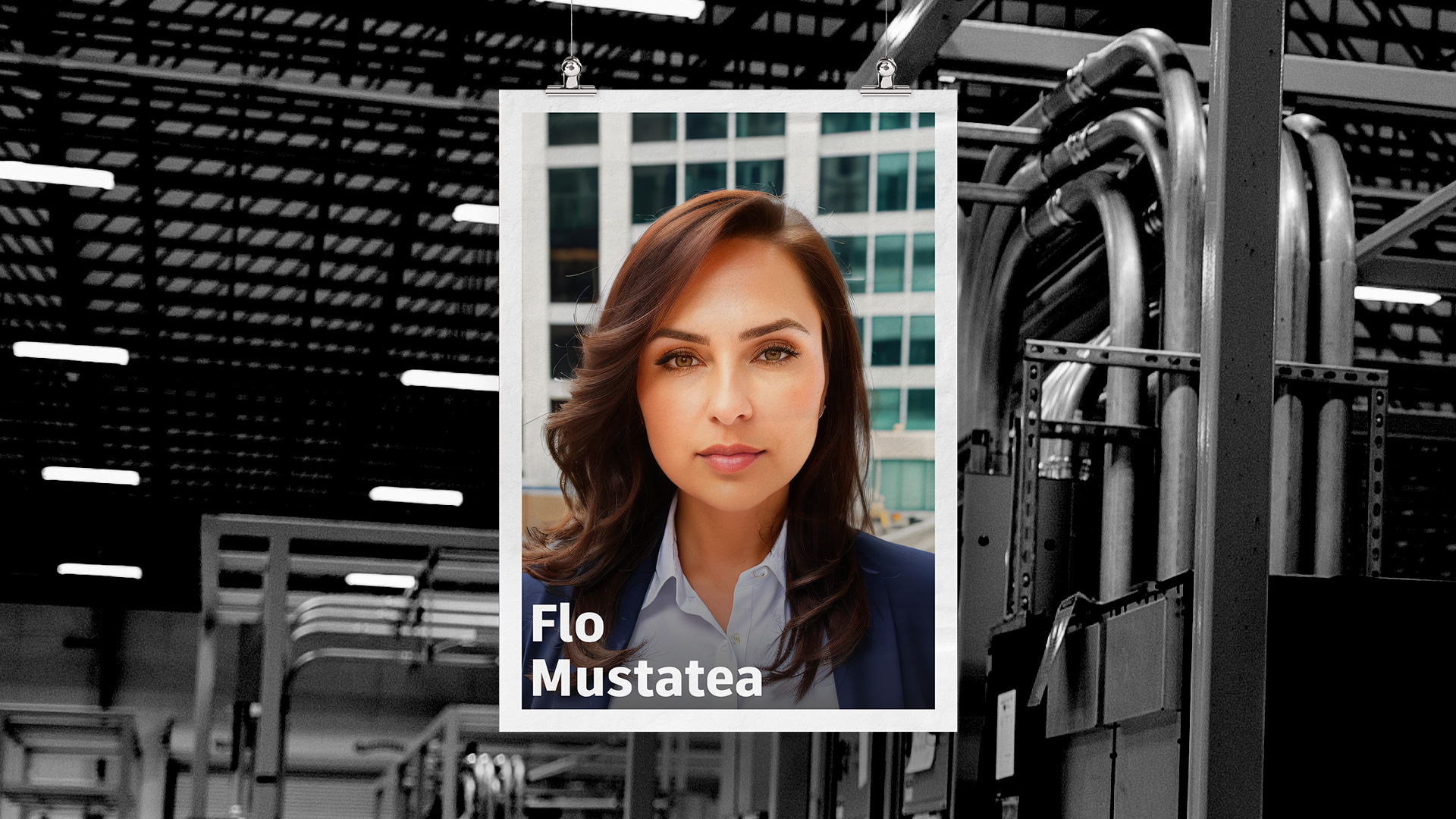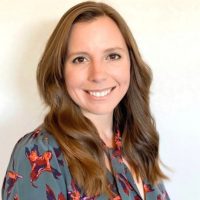Help us improve your experience. See content that is made for you!
See how IBM increased their efficiency by up to 30%!

Help us improve your experience. See content that is made for you!
See how IBM increased their efficiency by up to 30%!


If there's one thing the most innovative construction firms have in common, it's that they're not afraid of a challenge. Whether meeting impossible deadlines or building in less-than-ideal conditions, the best companies and teams find ways to deliver projects expertly and skillfully.
One such example of an organization doing just that is Turner Construction Company. Known for pioneering innovative building practices and executing remarkable projects (including the world's tallest building), Turner has consistently pushed the boundaries of what's possible in the construction industry.
We recently had the pleasure of speaking with Flo Mustatea, Project Engineer at Turner. In our conversation, Flo sheds light on her career journey, her experiences at Turner, and what she and the team are doing to advance innovation both in the company and the industry in general.
Turner has always been an innovator, way back when it started in 1902 with Henry C. Turner. We were among the first to use steel reinforcement in concrete in the early 1900s.
From that, we went on to build the tallest building in the world, Burj Khalifa, and many other iconic structures.
We have over 12,000 employees nationwide and complete around 1500 projects every year. We are able to offer a personal approach by having local offices, like the one I'm in Dallas. We also have one in San Antonio, Austin, and Houston, and that’s just Texas.
At the same time, we have the stability and resources of a global organization. Our projects are extremely varied. We build schools, hospitals, stadiums, museums, airports, data centers, offices, and much, much more throughout North America, including Canada. We have offices in 30 countries around the world.
But to me, Turner's most important characteristic is living, breathing, and acting on our values, such as community and citizenship, diversity and inclusion, integrity, and honesty when we're doing business with our clients and trade partners.
One of my favorite things is that we have a thing called Turner City. Our wonderful VDC managers create a city built with the projects we are working on throughout the world. They release it every year, and every year, it becomes bigger and more beautiful.
Those were the driving factors that determined my desire to work for Turner. My current position is Project Engineer, and it encompasses many facets.
As a Project Engineer, you are onsite. We have dedicated engineers on each project, which is slightly different from many other companies I've worked for. We interact directly with the design team and the owner during the submittal RFI and construction project closeout processes.
My role is also involved in the procurement stage, basically before the project starts and estimating, ensuring that the trade partners have complete scopes of work, the pre-construction interviews, and the pre-installation meetings.
After the start of the project, we participate in daily construction activities on site. We are also involved throughout the project with pricing changes, constructability reviews, forecasting, budgeting, and many other items. So we're quite busy, but we do believe that a team cannot be successful without full collaboration from all team members of the project.
For example, my team has daily huddles where we talk about our daily activities, what challenges we're facing, what solutions we can offer, and how we can tackle day-to-day activities.
My story is pretty funny because I actually fell into construction.
To give you a little bit of background, I'm Romanian. I was born and raised there, and we specialize in whatever we do throughout our lives since we were children or whatever our parents want us to do.
I was a professional musician, and I played the flute. I went to an art school, and then, in '04, I received a scholarship in music at LSU, and that's how I ended up moving to the United States.
In 2007, I was looking for a job, and I interviewed with a stucco subcontractor for an office administrator position. In the interview, I mentioned that I had taken architectural drafting classes. They wanted to see some of the stuff I've done, and from there, they said, "Well, we're actually looking for an estimator and project manager if you're interested in learning."
And I was like, "Sure." So that's pretty much how it started.
And fun fact: over a decade ago—I'd say probably in 2012 or 2013—I saw the documentary about Burj Khalifa and Turner.
I said, "That's who I want to work for."
At the ripe age of 28, I went back to LSU to get a construction management degree. I also earned a Spanish language degree while I was doing it. I then worked for a few general contractors in Louisiana and ultimately achieved my goal of working for Turner.
I've been with Turner for almost three years. We have a lot of opportunities to have our voices heard and be involved in our community and our business units.
One of the biggest factors for me is being involved in the engineering round table. This is a group of engineers from the business unit, and we meet every two weeks to discuss how we can improve our procedures and make everybody's lives easier. We also have small groups where we meet and talk about things that we've discovered and experienced.
That's one of the great things that has happened. The other thing I would say is that last year, I was involved in a competition called Set the Stage. Quite a few architecture companies submitted their designs to build a stage for the LGBTQIA+ community.
The proceeds from this event go to help young LGBTQIA+ students who are getting involved in the construction industry, architecture, or design. So that was a lot of fun. We volunteered and built the stage for three months every weekend. And then there was a drag show on it.
It was so much fun. It proved that Turner is all about inclusion and diversity. So again, the company is about being an innovator while respecting everyone and caring about people.
Deadlines. Many things happen after you start a project, and I'll touch upon the project I'm on. It's an extensive renovation, and there's a lot of unforeseen conditions. So, we have a lot of requests for information. We have a lot of constructability reviews and meetings to talk about different challenges.
It's really good to have a platform that enables you to keep a record that you can reference later. We're all humans, and if you ask me what I did five months ago, I may not remember. So, record keeping of your activities is always something really important to us.
It's also great to have an encompassing database to download all your closeout documents at the end of the project. This goes back to keeping records, but it also gives you confidence because you know that your information is accurate and what you're offering the owner at the end of the project is correct and complete.
My project is called the Zale Lipshy Pavilion, which is a hospital renovation at UT Southwestern in Dallas. It is about 80% MEP, meaning mechanical, electrical, and plumbing replacement of equipment. And it is an occupied hospital.
That has been the biggest challenge. There were surgeries that were getting performed, immunocompromised patients, and we had to keep everything contained while doing renovation in an active hospital.
Another challenge is that this building was built in the 1980s and hasn't received any major renovations until now. So, with the MEP, the ductwork changes, and the major waterline changes, we had to ensure there were no clashes and that we were placing things in the right place.
We are using several software platforms to support our work on this complex project. Having a bridge with BIM and collaborating with our trade partners and the design team through ACC Build is one of the tools that has been very positive.
It's always great to have a document center or a place where trade partners, design teams, owners, and the rest of your team can access all the documentation pertinent to the project, even when they're not on site.
Obviously, there's a learning curve with everything, but we are always happy to provide feedback and solutions to help everybody.
Being a part of pilot programs and software development is thrilling. It's always beautiful to be at the forefront of things.
Beyond that, I would say that we like being part of other challenging projects that require planning and new ideas, tools, and practices. The project I'm on right now has proven to be just that. We've had to come up with a lot of ingenious ideas to make everything work.
So when I think about the future, I look forward to continuing to work on exciting, challenging projects because the challenges are opportunities to be better.
Always be open to learning from your peers. Find mentors and never be afraid to ask questions, but also, never be afraid to question. Most of the time, the best discussions and ideas come from asking why.

May we collect and use your data?
Learn more about the Third Party Services we use and our Privacy Statement.May we collect and use your data to tailor your experience?
Explore the benefits of a customized experience by managing your privacy settings for this site or visit our Privacy Statement to learn more about your options.